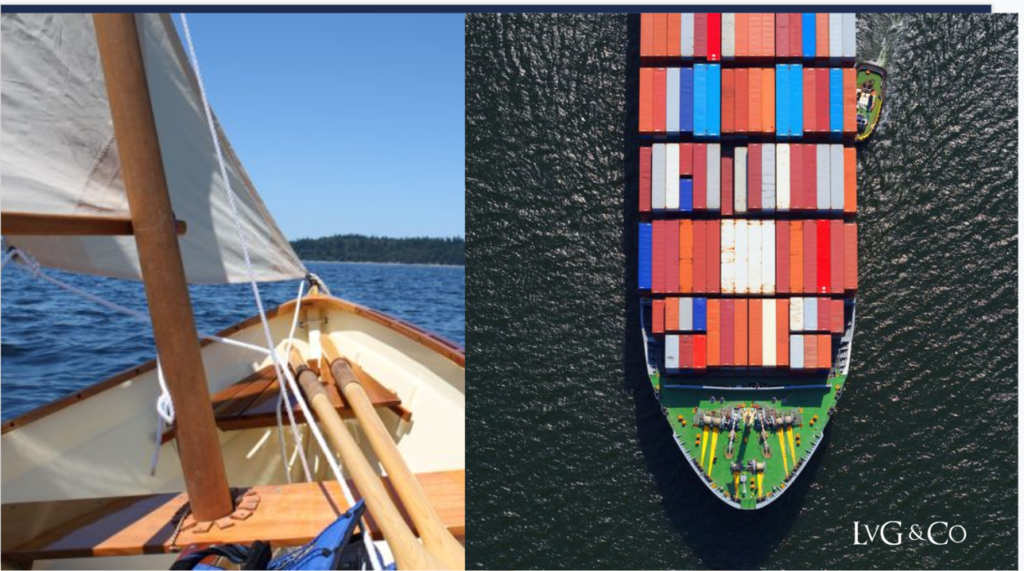This is the first of three articles in a series about ‘the value of values’ in which we will highlight values as a guiding principle for positive impact. We’ll begin by defining what values are, how they’re used, and their evolution for use in business. The second article will be about walking the talk: identifying your unique values and committing to them with action. The last article will capture the consumer, corporate, investor and systems level opportunities of being values-led – the proverbial “value of values”. We look forward to engaging with you on this valuable topic.
Suddenly, values are the talk of the town. Why? Because as the world navigates an unprecedented moment of global disruption that’s brought everyday functioning to a standstill, values are top of mind. But even before COVID and its uncertain economic outcomes, values were rapidly rising as a conversation in business and beyond.
It’s likely nearly everyone reading this already has a good sense of the importance of values in shaping behavior. But would you go so far as to say values can catalyze change; that values can motivate and support positive impact for personal lives, businesses, and systems?
That’s what we’ll aim to begin doing today: Elevating values as guiding principles for positive impact.
What
Values can be defined in myriad ways.
- Merriam Webster dictionary is literal: “The financial, monetary or exchange value of a good or service”.
- Academic Value Theory applies a more abstract philosophical meaning: “The underlying or relational understanding of what people care about at a psychological, sociological or economic level”.
- American self-help guru and motivational speaker, Brene Brown suggests: “Values are the ideas or beliefs that we hold most important in our lives”.
- And, The Museum of Values in Berlin makes them more actionable, describing: “Situation-independent decision helpers”.
I believe values are all these definitions above, and more. My add? “Values are morals and ethics stated so as to be readily accessible for day-to-day use and reflection.”
Perhaps, however, it would also help to think about how we define our own values. For example, in personal life – values are determined by intrinsic factors like DNA, inherited factors like family and tradition, taught by community and educators, gained or even chosen throughout life’s ups and downs. Together, these inputs shape our experience and perspective. For businesses determining their values, we mimic this natural process – conscientiously evaluating who we believe we are and want to be, then selecting a few traits or characteristics that describe this to the world.
Of course, it’s also possible that values are more easily defined in the context of how they’re actually used…
How
What if we thought about growth as a journey by sea? There will be predictable winds, tides and currents, all the mappable features to avoid; but would you dare set out- whether for a Sunday sail or a cross-ocean cruise- without a compass or GPS?
That’s the role of values: they are the coordinates that guide a ship from its starting point to a desired destination. They are a key lens for how we think, feel, and act. Scientific research shows that when one lives a values-led life – they experience a greater sense of ease and synchronicity, purpose, conviction and connection.
Living by one’s values is also an imperative of authenticity. What we believe and how we embody these beliefs are fundamental to how respected personalities and businesses are created and sustained. In this way, values become an important pillar of brand building, an essential input to who you are for all stakeholders. Ultimately, for businesses of all types – values become a filter and guardrail for decision-making at the organizational, operational and creative level.
One thing worth mentioning that is perhaps counterintuitive: The bigger the business, the more important to lead with values – integrating them into every aspect of the culture, strategic planning and execution. To return to the boat analogy: it’s one thing if your compass is slightly miscalibrated in a small sailboat close to shore on a sunny day; it’s a whole other to find the GPS coordinates are incorrect, or haphazardly entered on a tanker ship crossing a sea. The point? The larger the ship, the greater the potential negative consequences of steering even just a micro degree off-course.
As great philosophers through the ages have long known, values help guide us – and they are more essential now than ever for helping businesses navigate our modern times.
When
Back in 2008, when the world was in another period of transition and chaos, I was graduating from business school with the intention of helping the luxury industry (in which I had worked for eight years prior), move towards a more sustainable future. Unfortunately, that was NOT the conversation being had by luxury retailers or manufacturers at that moment.
So, as the global economy entered into seeming freefall, I took a job with the Boston Consulting Group where in 2010, I contributed to a white paper that speculated on the fundamental and lasting changes to consumer behavior in the luxury sector that would emerge from the crisis. We postulated that luxury had lost much of its ‘mystique’ and conspicuous spending and status consumption would be forever changed. Of course, we were largely wrong; luxury spending came back in force over the past decade.
At the same time, people were becoming increasingly aware of the consequences of our capitalistic consumption model. From the Rana Plaza garment factory collapse in Bangladesh in 2013, that killed more than 1000 workers, and shed light on the human toll of global supply chains – to environmental activists like Greta Thurnberg bringing climate change and plastics in our oceans to the fore – the fact is that in 2020, we’re all more aware than ever before of the often negative impact of pure profit-seeking on people and planet.
Awareness is a first step in shifting attitudes and behaviour – and increasingly, CSR (or ESG) is table stakes for businesses. Consumers- especially younger Millenials and Gen Zers- demand companies take responsibility and commit to do less harm and give back. Among fast-growing companies of recent years are startups and long-established brands whose clearly stated values align to a more holistic purpose beyond revenue. In 2019, The Business Roundtable- among the largest corporate leadership consortiums in the world- made a public statement of purpose that touted this new ethos for business. Meanwhile, BlackRock- the world’s largest asset management firm- stated: “Society is demanding that companies, both public and private, serve a social purpose. To prosper over time, every company must not only deliver financial performance, but also show how it makes a positive contribution to society.”
Time will tell which companies and CEOs remain truly committed and successfully shift their business models and activities to support this endeavor, but we can be sure this is not a passing trend.
Closing
Values are our North Star: our guides, our conviction. If we lead with them, values will help us navigate all types of change, growth and disruption- big and small. And while values themselves do not jump up to catalyze change, they support our actions and decision-making at each step along the way as we move from today, to our desired tomorrow.
The conversation around values-led leadership, especially in business, is still blooming. While we’re ‘talking the talk’ a lot more, there is still much work to be done. In the next piece, we’ll begin to take action – moving from just talking, to ‘walking the talk’.
This post was written and contributed by:
Lisa Gralnek
Principal & Founder, LVG & Co.
An expert brand builder and changemaker, Lisa has spent more than twenty years creating and executing growth strategies for leading fashion, retail, and CPG brands, along with diverse start-ups, SMEs and nonprofits. Dedicated to helping values-led brands grow and innovate, she believes fundamentally in the power and responsibility of each of us to do better- for ourselves and the world we share. Lisa holds a BA in Political Science and French, and an MBA from INSEAD. Learn more at www.lvg-co.com.



